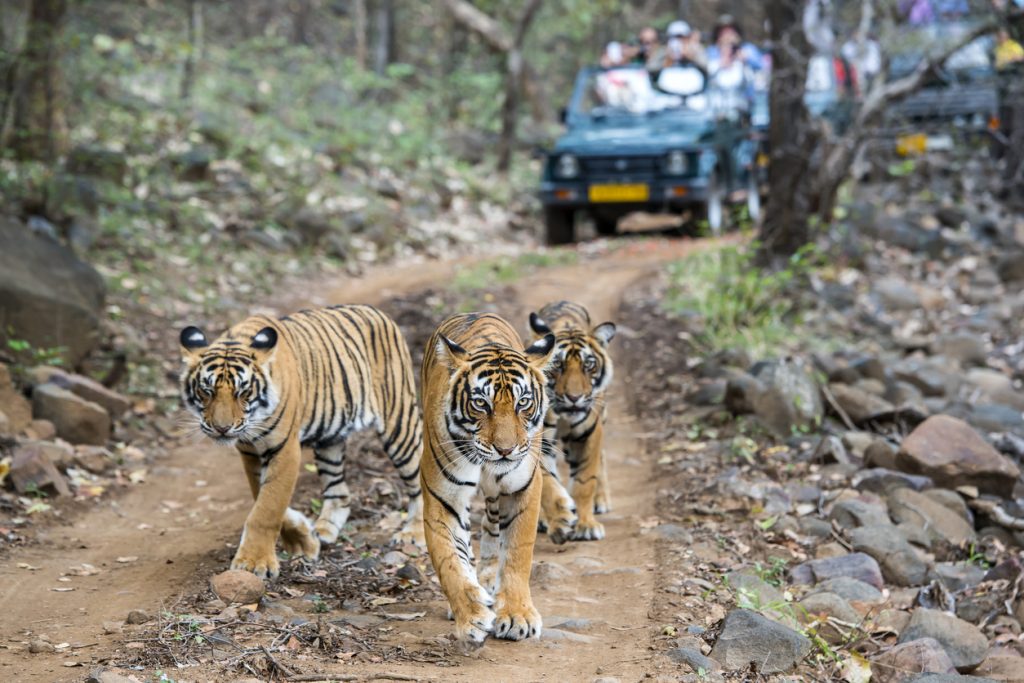Are you ready to embark on a journey filled with adventure, culture, tradition, and exciting attrations? Let your explorer's spirit soar and make unforgettable memories as you explore the beauty of our diverse world.
Explore ExperiencesWildlife tourism has always been popular among tourists and travellers. When people visit a new destination, they are bound to engage in wildlife experiences to admire the beauty of nature. Safaris, treks, hikes, swimming in the oceans, all offer tourists a chance to interact with different animals. But is this always a good thing?
Tourists are often insensitive to the needs of animals during these travel experiences. We tend to disregard their natural habitat and disturb their natural state. It is extremely important to be a responsible tourist and engage in positive wildlife experiences that don’t harm these animals or encourage their captivity. Here are ways you can be a more responsible wildlife tourist, so the next time you’re on a wildlife safari, you know what you need to do!
Keep a safe distance and respect their personal space
The golden rule while interacting with animals is to always keep a safe distance and steer clear of their paths. Most areas put up warning signs about how close you can get to these animals, pay attention! Always remember to never approach a wild animal, irrespective of how small or big it is. You can admire the wildlife of a destination from a safe distance, keeping both yourself and the animal safe.
During night drives don’t use excessive light which tends to disturb animals. Bright lights often lead to temporary blindness in some animals. Don’t tease or corner wild animals, their instinctive response might cause them to attack you.
Leave nesting birds alone
Many people assume it’s okay to get close to a tree that has a bird’s nest, especially to take pictures. However, you should know that even several metres’ distance can be immensely disturbing to a sensitive nesting bird. Birds are generally quite tolerant of human intervention but that does not give us the right to take advantage of them. If you hear a loud noise or sudden movement from the bird, step away immediately, it is a clear sign of distress.
Don’t call out to animals to get their attention
It’s almost become the norm for people to call out/coo/whistle at wild animals in the hope that they will catch their attention. Just as a human would not like to be whistled at, wild animals feel the same way. Sudden noises greatly disturb these creatures who are otherwise engrossed in some kind of activity or are simply resting. Remember that you’ve come into their territory and you cannot force a reaction out of them for your own entertainment. Let the animal decide what kind of contact they want to have with you.
Steer clear of a mother and its young
If you ever find yourself in a situation where you’re inadvertently separating a young one from its mother, step away immediately. Animals get extremely violent when they sense a threat to their children. Don’t force yourself into a space with a small animal if you see their parent around, things can turn violent.
Be aware of changes in behaviour in an animal you are viewing
Be wary when you’re viewing an animal. Read their reactions carefully and watch out for small changes in behaviour that indicate distress. Very loud calls, sudden movements, flicks of tails and grunts are warning signs that a creature is uncomfortable and has been caused distress. Immediately step away from the animal in such a situation and retreat to a safe location. When it comes to marine wildlife the safe distance is around 100 metres.
Don’t pollute by leaving behind waste
Tourists are infamous for leaving behind tonnes of waste when they are out in the wild. Plastic waste is discarded out in the open and there is a lot of mindless littering. As the world struggles to battle climate change, we must vow to be more careful about how we treat our natural surroundings. All the waste we leave behind in an animal’s natural habitat can cause great harm to their ecosystem. The creatures may ingest the garbage left behind and severely harm themselves.
Also read: Plastic Bags Left Behind By Tourists Kill 9 Sacred Japanese Deer
Never feed the wildlife
Any food you might offer wildlife can have a serious impact on their diets and cause them harm. No matter how longingly they look at the food you’re eating, don’t offer them any. In fact, since animals tend to get aggressive around food, it is best to tuck your food away when you’re out visiting wildlife.
Keep yourself safe
Interacting with wildlife does not just involve keeping the animals safe, you have to look out for your safety too. Wild animals have unpredictable behaviour patterns which is why it’s best to keep a safe distance and gauge their reactions before planning your next move. Not all animals are threatening, but it’s always better to be safe than sorry!
Have we missed anything out? Tell us what else one should do to be a responsible wildlife tourist in the comments below!
Also Read: 10 Unique Wildlife Experiences in Australia

